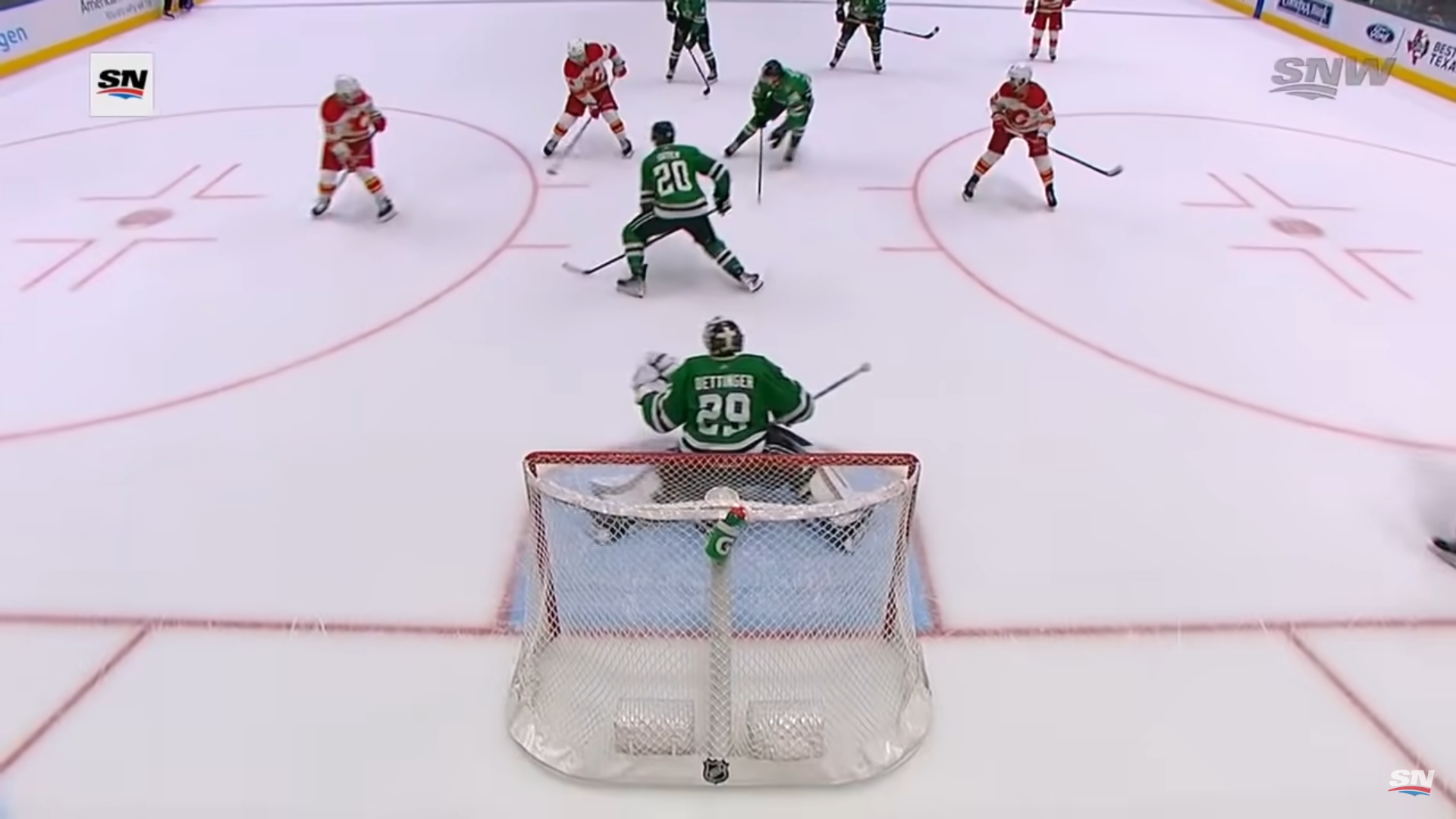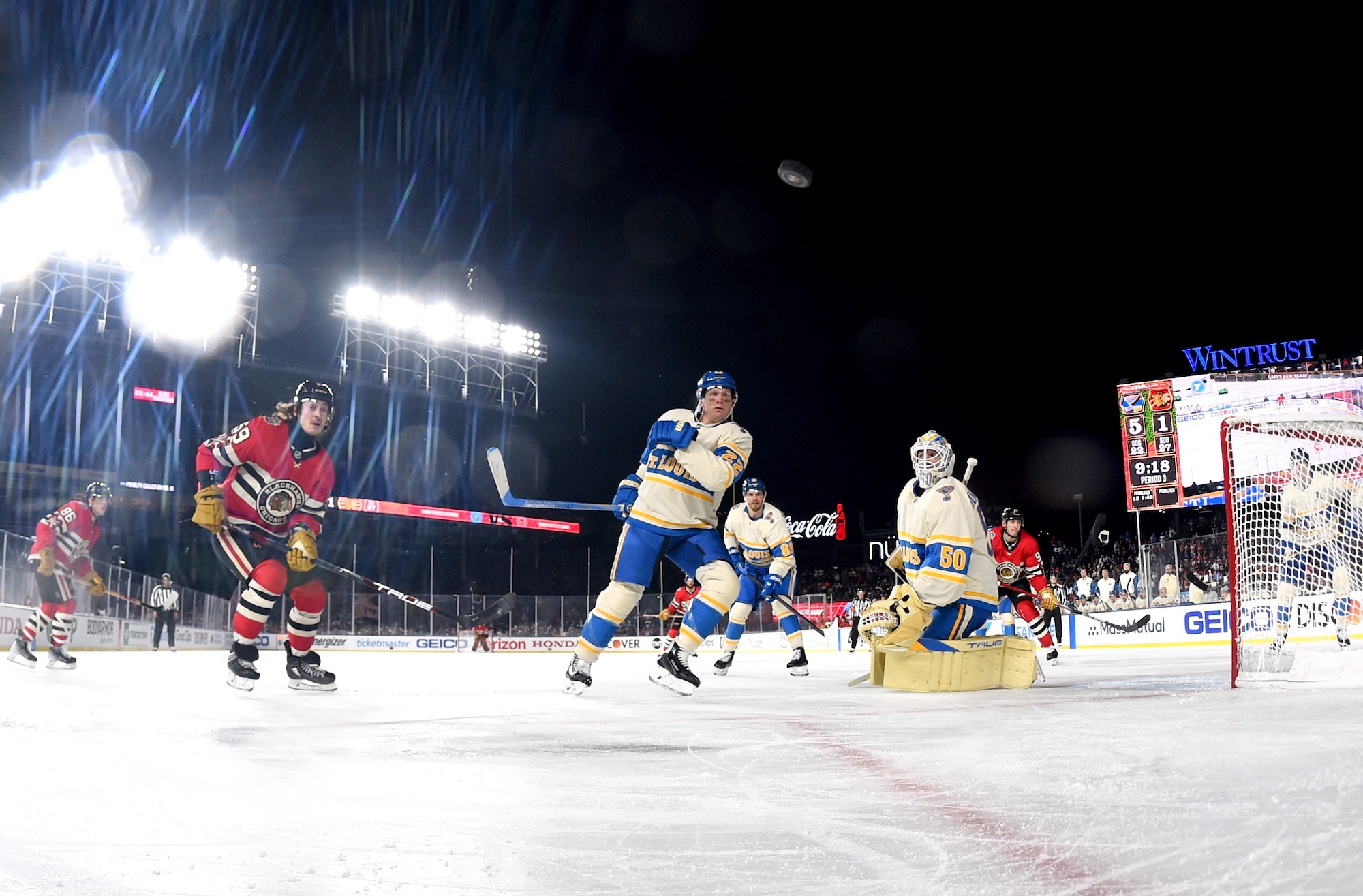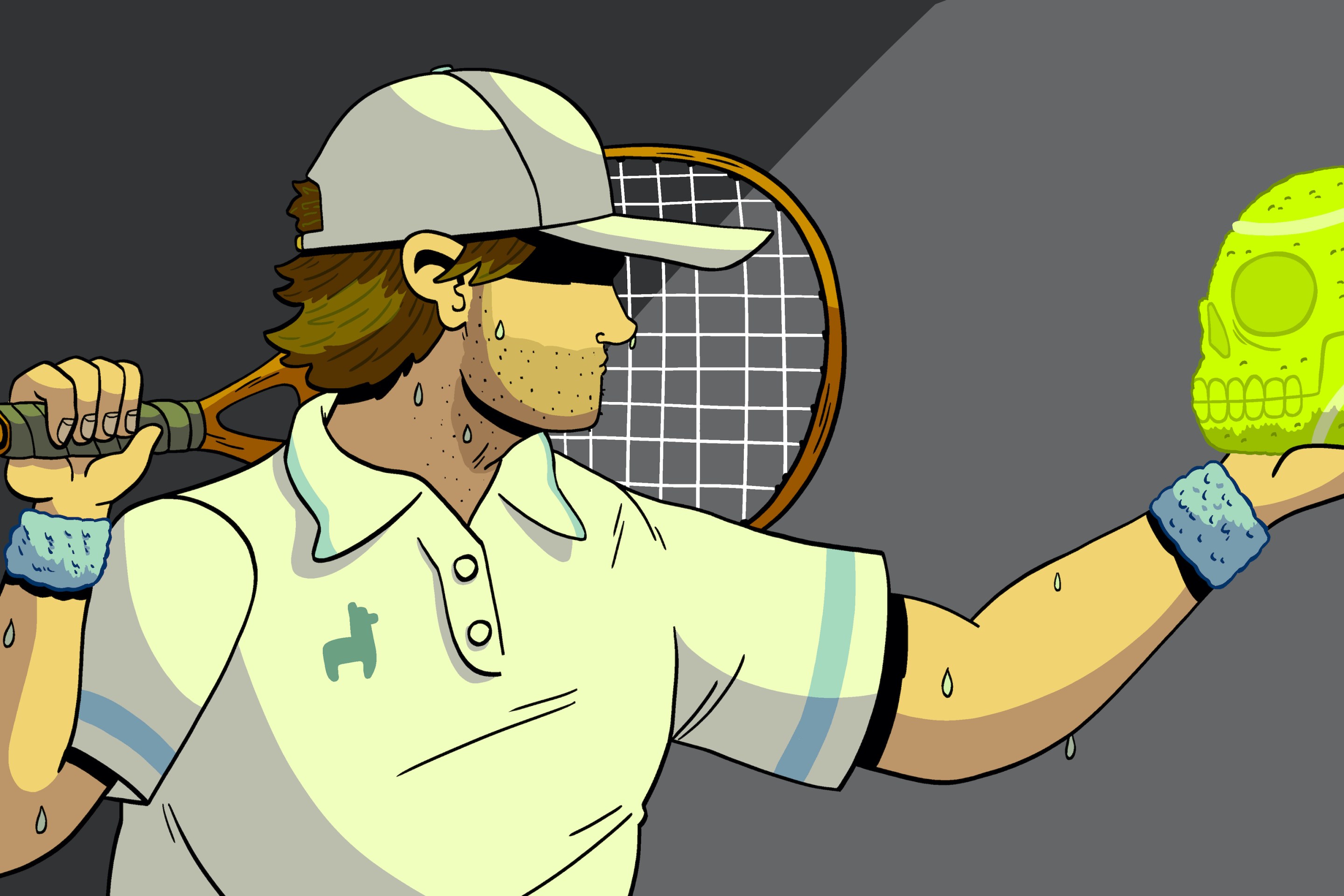One of the trickiest things to grasp for a person unfamiliar with watching hockey is just how damn hard it is to make a clean pass. Even the best players in the world struggle to pull off this seemingly most simple of plays several times per game. The puck is light and the ice slick but pitted. The targets are moving at very high speeds. And even just holding the stick in a position where the puck settles into your possession instead of roughly deflecting off the wood can be a tough ask.
However, unless I'm seeing the game alongside fresh eyes, the common turnovers and missed connections in an NHL game rarely faze me. Likewise, the successful transfer of the puck from one stick to another is typically just a bass drum that keeps my subconscious absorbed in the rhythm of the game. But when the most fundamental of plays—the pass—is executed to perfection, and then again, and then again, and then again, and then again, and then again, it can reopen your mind to the realities contained in hockey's plainest building block. Especially when it results in a comeback game-winner with under two minutes remaining.
The Calgary Flames fell behind against the Dallas Stars in Texas on Tuesday night, staring down a 3-1 deficit with only five-and-a-half minutes to play. Stars goalie Jake Oettinger had been stellar up to this point, but a wide-open goal for Andrew Mangiapane off an impossible-to-predict deflection made it 3-2, and less than a minute later, Matthew Tkachuk passed off the pads to Johnny Gaudreau while wrapping around the net to tie the game.
Calgary's momentum was soon halted by an Oliver Kylington penalty for holding, but when the young Flames d-man jumped out of the box, he found himself part of a transcendent display of Hockey 101. Calgary first broke the puck free from their own end—as far away from the Stars net as possible. Gaudreau then took control and sent it horizontally across the blue line to Elias Lindholm. Lindholm carried across center and passed further along to Kylington at the edge of the attacking third, with one defender and a goalie in front of him. Before you could blink, Kylington touched it back to Lindholm, who instantly returned it to Kylington, who kept it going to a trailing Rasmus Andersson. It was here that Oettinger truly bit on the play, moving confidently to his left to get in front of an Andersson attempt. But Andersson didn't shoot. He passed back one more time to Kylington, who saw the extremely inviting space for a one-timer and finally put the puck in the net.
The beautiful geometry of this rush is available from all angles:
Un-freaking-real. pic.twitter.com/c7wGH8l7sp
— Calgary Flames (@NHLFlames) February 2, 2022
It's not very appealing to imagine the ways a gorgeous highlight could have fallen short of its destiny, but there are more of them than usual in this case. A slightly faster or better-positioned stick check from Denis Gurianov would have halted the proceedings. An imperfection in the ice from 18 minutes of skating since resurfacing could have tripped up the fast exchanges. Even a small physics error, as each member of the trio engineered the exact angle and force they'd need to complete their passes, would have killed the charge. The other Flames seemed to be quite aware of the risks, and were in turn relieved to get to the resolution.
“It was a pretty play, but I think on the bench we just wanted somebody to finally shoot the puck," Mangiapane said afterward. "I’m happy it worked out. Great goal.”
My mind has been totally preoccupied with the Trevor Zegras Michigan goal since he pulled it off against Montreal a few days ago. I'm sure you can understand why. While it's trendy nowadays, getting the puck up on your stick and then plopping it into the net lacrosse style while skating around the goalie and avoiding defenders is an obscene skill that, in almost all cases, would be a waste of time to practice. Passing, on the other hand, is a prerequisite for playing hockey. It's taken for granted just as much as knowing how to skate without falling over. While 100 percent of Michigan goals are worth replaying years and years after they happen, what percent of passes ever command even a second thought? It's nice to see a handful that will live with me a little longer.





